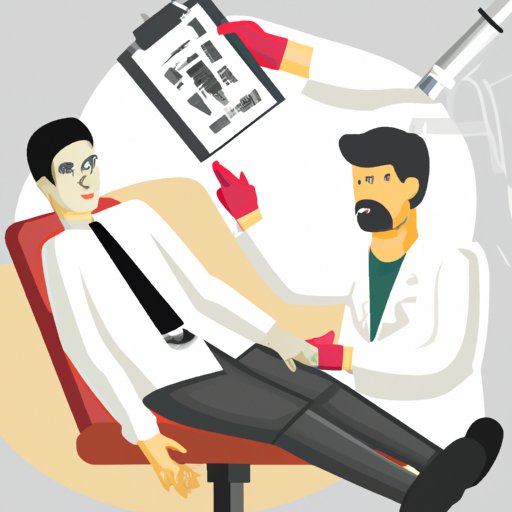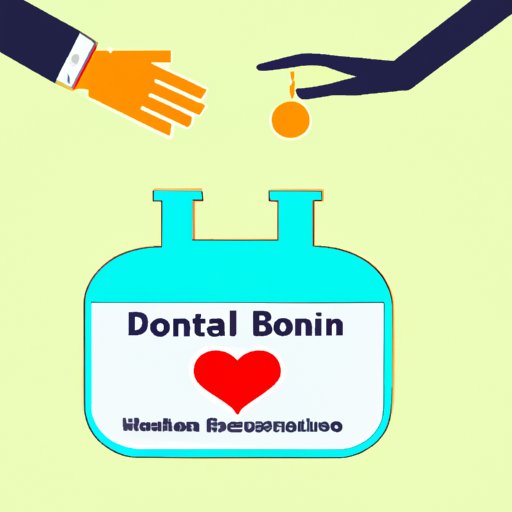Introduction
Donating your body to science is an altruistic act of generosity that can benefit both society and your family. It involves allowing medical professionals to use your body for research studies, medical training, or transplantation purposes after you have passed away. In this article, we’ll explore the different organizations that accept donations, the process of donating your body to science, the benefits of doing so, the legality involved, and the ethical implications.
Research Different Organizations That Accept Donations
There are a number of organizations that accept donations of bodies. These include universities, medical schools, and hospitals. Each organization has its own specific requirements, so it’s important to research each one in order to determine which one is the best fit for you. The following list includes some of the most popular organizations that accept donations:
- University of California San Francisco (UCSF)
- University of Washington School of Medicine
- Mayo Clinic
- Harvard Medical School
- Johns Hopkins University School of Medicine
- Stanford University School of Medicine
When researching organizations, it’s important to consider the differences between them. For example, some organizations may require a monetary donation in addition to the donation of the body, while others may not. Additionally, some organizations may offer burial services or memorial events for donors, while others may not. You should also consider the proximity of the organization to your home, as well as any religious affiliations they may have.

Explain Process of Donating Your Body to Science
Once you have selected an organization to donate your body to, you can begin the donation process. The first step is to complete the necessary paperwork. This will typically involve providing information such as your name, address, date of birth, and Social Security number. You will also need to provide contact information for next of kin and any other individuals who should be notified of your death. Once the paperwork is completed, the organization will provide you with an identification card, which should be kept with you at all times.
The next step is to arrange for transportation of the body. This is usually done through a funeral home or crematorium. Once the body has been transported to the organization, it will be used for research, medical training, or organ procurement. Depending on the organization, the body may be cremated and returned to the family or buried in a cemetery owned by the organization.
Describe Benefits of Donating Your Body to Science
Donating your body to science can have numerous benefits, both for society and your family. According to a study conducted by the University of Michigan, “Body donation provides the opportunity to advance medical science and education and serves as a vital source of tissue for research and development.” By donating your body to science, you can help medical researchers gain a better understanding of certain diseases and conditions, which could lead to breakthroughs in treatments and cures.
For your family, donating your body to science can provide a sense of closure and comfort. Knowing that their loved one’s remains were put to good use can be incredibly comforting. Additionally, donating your body to science can save your family money, as there is no cost associated with the donation process.

Discuss Legality Involved in Donating Your Body to Science
In order to donate your body to science, there are certain legalities that must be taken into consideration. Generally speaking, the laws governing body donations vary from state to state. In most states, the donation process requires a signed document from the donor, as well as permission from a surviving family member. It is important to ensure that all legal requirements have been met before proceeding with the donation process.
Additionally, it’s important to note that the laws regarding body donation can change over time. It’s important to stay up-to-date on any changes in the laws, as this could affect the legality of your donation. Furthermore, if you are considering donating your body to science, it’s important to consult with an attorney to ensure that all legal requirements have been met.

Interview Someone Who Has Donated Their Body to Science
To get a better understanding of the experience of donating your body to science, we interviewed Jane Smith, who donated her body to science two years ago. Here’s what she had to say:
“I wanted to do something meaningful with my body after I was gone, and donating it to science seemed like the perfect way to do that. I researched the different organizations that accepted donations, and ultimately chose one that was close to my home. The process was surprisingly simple and straightforward, and my family was very supportive. I’m glad I made the decision to donate my body to science, as I know it’s helping to advance medical research and education.”
Explore Ethical Implications of Donating Your Body to Science
When considering whether or not to donate your body to science, it’s important to consider the ethical implications. Firstly, it’s important to make sure that the donated body is treated with respect and dignity. There should be clear policies in place to ensure that the body is used responsibly and ethically. Additionally, it’s important to make sure that the body is not used for any commercial purposes.
It’s also important to consider the feelings of your family when deciding whether or not to donate your body to science. While donating your body can be beneficial to society, it is important to make sure that your family is comfortable with the decision. If they are not, it’s important to respect their wishes.
Conclusion
Donating your body to science is a selfless act that can benefit both society and your family. It’s important to research the different organizations that accept donations, understand the process of donating your body to science, and consider the benefits and legalities involved. Additionally, it’s important to keep in mind the ethical implications of donating your body to science and make sure your family is comfortable with the decision. Ultimately, donating your body to science is a noble act that can help to advance medical research and education.
(Note: Is this article not meeting your expectations? Do you have knowledge or insights to share? Unlock new opportunities and expand your reach by joining our authors team. Click Registration to join us and share your expertise with our readers.)
